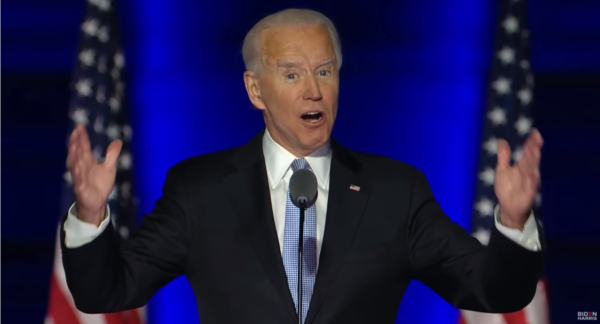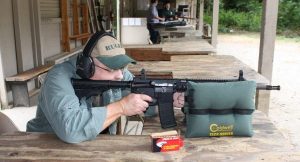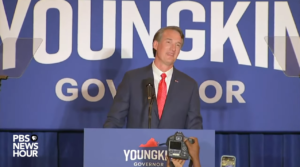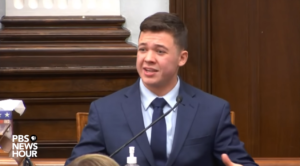
The year 2021 may be recalled as a year loaded with important stories revolving around the Second Amendment, but by far the most significant gun rights story of the year is about what didn’t happen: Joe Biden’s anti-gun agenda stalled on the runway of reality.
When the Delaware Democrat took office, he was packing heavy luggage, known as “The Biden Plan to End Our Gun Violence Epidemic.” It was ambitious, loaded with proposals such as bans on so-called “assault weapons and high capacity magazines,” a massive “gun buyback” (which made no sense since the government never owned those firearms to begin with), regulation of modern semi-auto rifles same as machine guns, a restriction on the number of firearms people could buy, incentives to states to require licenses in order to buy guns, expanded background checks and more.
There was just one problem. The public and Congressional Republicans weren’t buying what he was selling, and that much became obvious when, only a few months into his presidency, Biden nominated quite possibly the worst candidate for the job as director of the federal Bureau of Alcohol, Tobacco, Firearms and Explosives: David Chipman.
Biden used considerable political capital he really couldn’t afford when he nominated Chipman, a former BATF agent who had worked as a senior advisor to gun control organizations following his retirement, and who had advocated for a ban on semi-auto rifles, the most popular rifle in the country today. Political red flags were raised, and Congress was deluged with calls, emails and letters opposing the nomination. During his confirmation hearing before the Senate Judiciary Committee, Chipman reiterated his support for a gun ban.

Gun prohibition lobbying groups admitted Chipman was the fellow to carry out their gun control schemes and push through Biden’s agenda.
Preventing Biden’s plan from becoming reality was the biggest gun rights story of the year. Earlier this month, on the ninth anniversary of Sandy Hook, Biden was forced to acknowledge, “We came close to legislation, but we came up short.”
Rubbing salt into that open wound was the U.S. Supreme Court’s acceptance of a major gun rights case for review, New York State Rifle & Pistol Association v. Bruen, challenging the Empire State’s “good cause” requirement to obtain a carry license for handguns. Gun control advocates are terrified of the potential ruling—expected in late June—that could strike down as unconstitutional the state requirement to obtain a permit in order to exercise the constitutionally-protected right to bear arms. The high court appears poised to rule the Second Amendment extends beyond the confines of one’s home, which is the nonsensical argument posed by some anti-gunners. But as Alan Gottlieb, founder and executive vice president of the Second Amendment Foundation, observed, “A right that exists only in one’s home is not a right at all. We do not limit the right of free speech, or freedom of the press, or the practice of one’s religion, or the right to legal counsel just to someone’s residence. And ultimately, that’s what we’re talking about, constitutionally-protected fundamental rights.”
If the New York requirement is struck down, similar laws in California, Maryland, New Jersey, Massachusetts and a couple of other states will be in jeopardy.
Anti-gunners suffered back-to-back stinging defeats in November, which will be felt well into the New Year.

First came the Nov. 2 complete flip of the Virginia state government, with Republicans Glenn Youngkin, Winsome Sears and Jason Miyares elected governor, lieutenant governor and attorney general, respectively, in a clean sweep of statewide offices. The House of Delegates will be back in Republican hands as well, and as Gottlieb noted the day after the election, Virginia gun owners turning out in droves made the difference.
Two weeks later, Kyle Rittenhouse, the teen charged with two counts of murder and one of attempted murder, was acquitted by a Kenosha, Wisconsin jury of five men and seven women, who determined he acted in self-defense the night in August 2020 when he killed two men and wounded a third during a riot in the city. It was a case not only against Rittenhouse, but against armed self-defense, and when the verdict came down, the anti-gun lobby cringed.
The Rittenhouse acquittal translated to a finding by the jury that people can use lethal force in self-defense when they conclude they are in danger of grave bodily harm or death. Immediately after the incident, the far left and many in the media quickly demonized the teen as a white supremacist, and the media falsely reported Rittenhouse had “crossed state lines” with an assault rifle. When the truth emerged in court that the rifle had always been in Wisconsin rather than where Rittenhouse lived in northern Illinois, there was barely an effort outside of Fox News to clarify the record.

One of the men Rittenhouse fatally wounded had earlier threatened to kill him, and was in pursuit of the teen through a car lot when he was shot. The second man had just struck him on the head or neck with a skateboard, which could be considered a “blunt instrument” capable of killing someone.
This year, five states adopted so-called “constitutional carry” statutes, including Texas, Iowa, Montana, Tennessee and Utah. With each new law came dire predictions of “blood in the streets,” but there is more violence in anti-gun cities such as Chicago, Baltimore, Washington, D.C., Seattle, Portland and New York City.
Actor Alec Baldwin came under heavy criticism for the Oct. 21 fatal shooting on-set of cinematographer Halyna Hutchins and wounding of director Joel Souza while rehearsing a scene for the western “Rust.” Baldwin was handling the single-action revolver when it discharged, sending a bullet through Hutchins and into Souza at close range.
Authorities are still investigating to determine how live ammunition got onto the movie set and how a live round ended up in the gun Baldwin was handed, and why the actor/producer didn’t personally check the firearm before starting the rehearsal.
The shooting raised alarms in the firearms community because of alleged safety violations, and because Baldwin has been outspoken in the past in favor of some gun control. No charges have been filed against anyone.